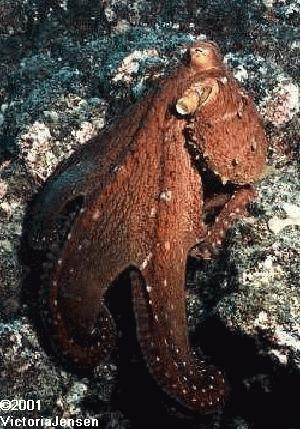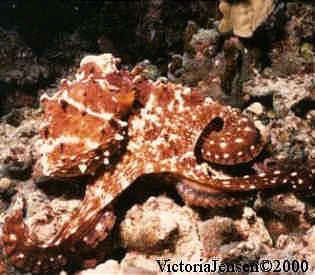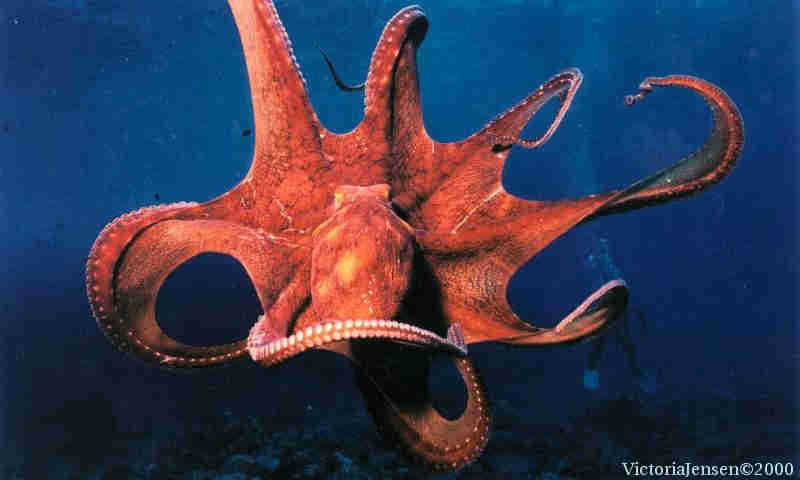|
|
|
|
| |||
|
|
|
|
| |||
| |||
|
|
|
|
|
|
|
As masters of camouflage, their ability to blend and seemingly melt in with their surroundings both in color, patterns, shape and texture, makes them incredibly hard to spot unless you have the patience to hold very still for a time scanning your surroundings for a coral head or a rock that suddenly seems to begin slightly moving.
|
|
|
|
I have found that their curiosity can easily get the better of them. One afternoon I had just finished leading an underwater tour and after making sure everyone was back on board I decided to check the anchor and hang out under the boat for a little while, just kind of floating in place a few feet off the bottom enjoying the weightlessness and scanning my surroundings.
|
|
|
|
The more one tries to pull, the more the octopus feels its security is being threatened and the tighter their grip becomes. The best course of action is to just hold still or sidle up to a rock or coral head which they much prefer to the instability of humans.
|
|
|
|
Actually their skin is pretty tough. If we were to crawl around bare skinned in the coral and rocks the way they and the ever so soft eels do, we'd be pretty cut up. |
Though they have a "beak" which is located under the head where the tentacles stem out from, capable of crushing shells to get at the meat inside, I have never been bit nor been on a dive where anyone else has. I have been told that "night octopus" are much more prone to biting and though I have handled them, I am a little bit leary of them. They are really cute little guys, quite a lot smaller with little white spots. The largest one I've seen in Hawaiian waters was a little under a foot long. |
|
When they choose to move through open water from one area to another they jet propel themselves by in taking water and forcibly blowing it through a funnel as they contract their muscles. Their movement in this manner is limited to short, but quick bursts in a singular, head first direction; though with the addition of their famous "ink" cloud, which serves to hide their movements and temporarily ruin the sense of smell of potential predators such as eels, they can usually make good their escape when it becomes necessary. |
 |
 |
 |
 |
 |
 |
I once had the privilege of observing the mating ritual of the octopus. It looked more like passionate hand holding as they intertwined a tentacle with one another. I wasn't really aware of what was going on until my dive buddy explained it to me using a few well chosen hand signals. |
 |
 |
 |
 |
 |
 |
All of the photos on this page are of the "Common
Octopus" (although, I find them very beautiful, endearing and deserving of a classier name), and were taken by me in Hawaii. If you would like prints or would like to use any of them please click on my "Photo Copyright" link.
|
| ||||
| Gallery Index | |
| 1.Handcrafted Creations: Dolphin & Whale Boxes | |
| 2.My Underwater Photo Gallery II: Green Sea Turtles | |
| 3.My Underwater Photo Gallery III: More Marine Life | |
| 4.Underwater Photo Gallery IV: Dolphins | |
| 5.Underwater Photo Gallery V: Humpback Whales | |
| 6.My Home Page, AKA: Play Deep | |
| |












